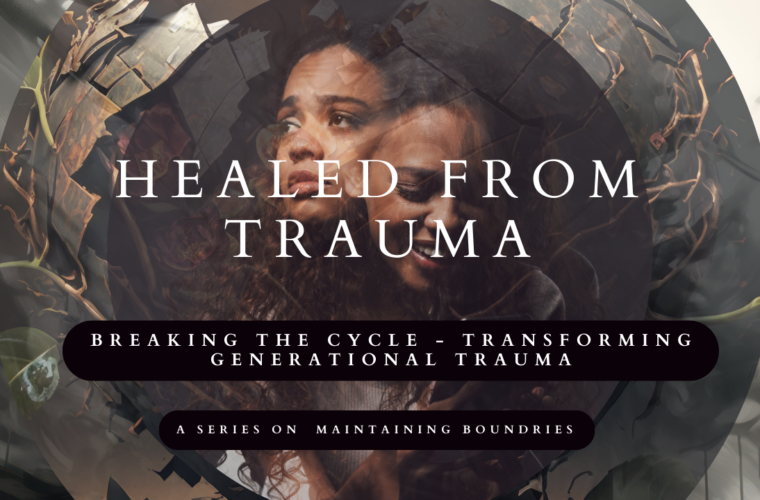Title: Healed from Trauma: Breaking the Cycle – Transforming Generational Trauma
Trauma is a powerful force that can echo through generations, leaving an indelible mark on families and communities. However, the human spirit has an incredible capacity for resilience and healing. In this article, we explore the journey of breaking the cycle of generational trauma and the transformative power that comes with healing.
Understanding Generational Trauma:
Generational trauma refers to the transmission of trauma from one generation to the next. This can occur through various mechanisms, including learned behaviors, emotional patterns, and even biological changes. Families that have experienced trauma, such as abuse, war, or systemic oppression, may find themselves trapped in a cycle that seems impossible to escape.
Breaking the Silence:
One of the first steps in breaking the cycle of generational trauma is breaking the silence surrounding it. Often, families impacted by trauma develop a culture of secrecy, where painful experiences are hidden away. By opening up communication and fostering a safe space for expression, individuals can begin to share their stories without fear of judgment.
Seeking Professional Support:
Addressing generational trauma often requires professional intervention. Therapists, counselors, and support groups play a crucial role in providing the necessary tools for healing. These professionals can help individuals and families navigate through the complex emotions and behaviors that may have been ingrained over generations.
Cultivating Emotional Resilience:
Building emotional resilience is a key component of breaking the cycle of generational trauma. This involves developing coping mechanisms, emotional intelligence, and a strong support system. By learning to manage stress and adversity, individuals can interrupt the pattern of passing trauma to the next generation.
Healing through Self-Reflection:
Personal growth and self-reflection are integral to the healing process. Individuals who have experienced generational trauma can benefit from exploring their own beliefs, values, and behaviors. This self-awareness allows for a deeper understanding of how trauma has influenced their lives and provides a foundation for positive change.
Empowering Future Generations:
Breaking the cycle of generational trauma is not only about personal healing but also about empowering future generations. By actively working towards healing, individuals contribute to creating a healthier family dynamic and environment for their children. This involves instilling resilience, communication skills, and a sense of self-worth in the younger generation.
Building a Supportive Community:
Transforming generational trauma requires a collective effort. Building a supportive community where individuals can share experiences, resources, and encouragement is crucial. Community organizations, workshops, and advocacy groups play a vital role in creating an environment where healing can take place on a broader scale.
Healing from generational trauma is a profound and challenging journey, but it is also a journey of empowerment and transformation. By breaking the silence, seeking professional support, cultivating emotional resilience, engaging in self-reflection, and building supportive communities, individuals can disrupt the cycle and pave the way for a healthier and more resilient future. The human spirit’s capacity for healing is a testament to our ability to overcome adversity and create positive change for ourselves and generations to come.




